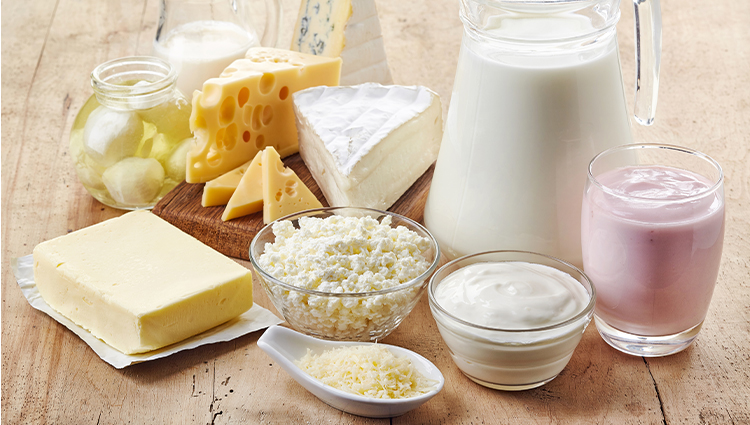Chronic inflammatory diseases are among the most common causes of death worldwide. While we depend on acute inflammation to heal and remain healthy, the process can become uncontrolled and persist indefinitely. Such chronic, low-grade inflammation is harmful and of serious concern – it’s associated with many diseases, such as arthritis, Type 2 diabetes, heart disease and cancer.
Nearly 125 million Americans in 2000 were living with chronic inflammatory diseases, and 21% of those Americans had more than one. These diseases continue to threaten public health, and prevalence is anticipated to steadily increase over the next 30 years.
Diet and Dairy on Reduced Risk of Chronic Inflammation
We don’t quite understand yet what leads to chronic inflammation. However, ongoing research continues to investigate and identify factors leading to increased and decreased risk.
Diet is a popular area of study, as metabolic regulation and immune responses are highly integrated and because diet is tied to related factors such as obesity, smoking, high cholesterol and physical inactivity.
Fruits, vegetables and whole grains get a lot of attention regarding healing properties for chronic inflammation, largely due to phytochemicals and their antioxidative properties. But dairy? It’s often assumed to contribute to inflammation. Yet the opposite is true. According to a large body of research, dairy consumption is linked to either reduced levels of inflammatory biomarkers or to no adverse effects on inflammation.
What Kind of Dairy Is Best?
The good news is you can feel good about eating all types of dairy.
Evidence shows that regardless of fat levels, as part of a balanced diet, all dairy has either positive or neutral effects on chronic inflammation.
- One multicenter randomized crossover study conducted in 2014 researched the effect of diets containing a balanced mix of low-fat and high-fat dairy on inflammatory markers in men and women with low-grade inflammation. Results indicated that diets composed of both low-fat and high-fat dairy products had no adverse effect on inflammation and even demonstrated reduced levels of several biomarkers of inflammation.
Perhaps not surprisingly, fermented dairy products – such as yogurt – are also linked to reduced chronic inflammatory markers:
- A 2017 randomized controlled trial found that healthy, premenopausal women who consumed two servings of low-fat dairy yogurt a day had significantly lower levels of chronic inflammatory markers than the controls who consumed unfermented soy yogurt.
Although the mechanisms by which milk products affect systemic inflammation is unclear, there are several nutrients in milk that are thought to positively contribute to reduced inflammation:
- Vitamin D – modulates effects of certain pro-inflammatory cytokines
- Calcium – enhances action of vitamin D
- Bioactive peptides – inhibit the stimulation of the renin-angiotensin system, thereby suppressing inflammatory responses
- Fatty acids – modulate cytokine production and expression of cytokine gene
- Oligosaccharides and lactoferrin – promote intestinal barrier function and have anti-inflammatory properties
Important Takeaways
Remember that researchers are only scratching the surface in terms of understanding chronic inflammation and its causes and effects. Although it’s easy to latch onto a solution of an “anti-inflammatory diet,” chronic inflammation is a complex process that is reflective of overall health rather than a single food or nutrient.
When it comes to staying healthy and preventing illness, some of the best practices are to follow a balanced diet, like the one outlined by MyPlate and the Dietary Guidelines for Americans, which advise we enjoy three servings of dairy foods daily, engage in regular physical activity and get enough rest.
Find recipes and learn more about the health benefits of dairy at DairyDiscoveryZone.com




